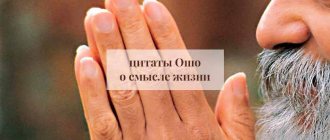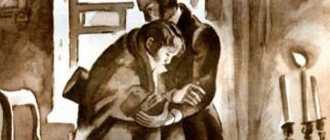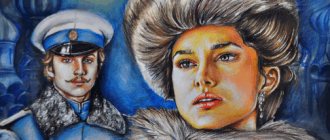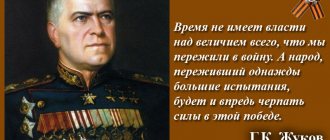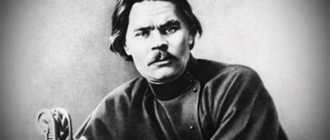“War and Peace” is a work by Lev Nikolaevich Tolstoy, which everyone knows from a school article. This work is not removed from the school literature cycle, because it contains many useful thoughts, the embodiment of which can be found in modern times.
Quotes from the amazing work “War and Peace” can be an excellent help in any debate where the importance of war is discussed. However, war is only one side of the coin. It is much more important not to lose your humanity, to maintain love for the one you love with all your heart.
Quotes from volume 1
War and Peace is a literary masterpiece recognized throughout the world. In the first volume of this incredible novel you can find many lines dedicated to the war. They are presented in parallel with the description of the main characters, by getting to know them, the reader learns more about their dreams and life principles. Do you want to know more about the first part of L. Tolstoy’s work? Read the quotes collected on this page.
Telling the truth is very difficult, and young people are rarely capable of it.
He said that there are only two sources of human vices: idleness and superstition, and that there are only two virtues: activity and intelligence.
Nobody likes virtue, it hurts everyone's eyes.
If everyone fought only according to their convictions, there would be no war...
Money, how much grief it causes in the world!
And yet, I love and treasure only the triumph over all of them, I treasure this mysterious power and glory that floats above me here in this fog!
There are no guilty people in the world. He who is happy is right!
Whoever understands everything will forgive everything.
POPULAR THOUGHT IN THE NOVEL
The monumentality of L.N. Tolstoy’s work is expressed, among other things, in the breadth of its depiction of life. In the novel there is a place for contrasting power, noble people and the people. This contrast is conveyed in the description of the state of mind. Pierre Bezukhov is greatly influenced by his meeting with a simple soldier. Platon Karataev surprises the count with his kindness, which did not disappear under the critical conditions of captivity. Affectionate, friendly speech, calmness, and moderation are preserved in the soldier. He is a sounding board of folk wisdom, which allows him to maintain composure and faith in the best. Kutuzov is also the bearer of such folk insight. This is his difference from the enemy commanders: “This simple, modest and therefore truly majestic figure could not fit into that deceitful form of a European hero, ostensibly controlling people, which history has invented.” Popular thought is also expressed in the critical pathos of the first volume, in which the capital’s nobility, the high society are incredibly far from the people, from the Russian army defending their interests with blood (textbook “Russian language and literature. Literature. Basic and advanced levels. 10th grade”, B. A. Lanin, p. 315). The people are shown by Tolstoy as a force that shows humility, but at the same time has enormous spiritual potential. It was this force that determined the outcome of the war, defeating Napoleon.
Quotes and aphorisms from the work:
- “Our happiness, my friend, is like water in delirium: if you pull it, it’s inflated, but if you pull it out, there’s nothing” (Platon Karataev)
- “To endure an hour, but to live a century!” (Platon Karataev)
- “The club of the people’s war rose with all its formidable and majestic strength and, without asking anyone’s tastes or rules, with stupid simplicity, but with expediency, without considering anything, it rose, fell and nailed the French until the entire invasion was destroyed.”
- “The presence and comments of Villarsky, who constantly complained about poverty, backwardness from Europe, and ignorance of Russia, only heightened Pierre’s joy. Where Villarsky saw deadness, Pierre saw an extraordinary powerful force of vitality, that force that in the snow, in this space, supported the life of this whole, special and united people.”
- “...he admired, talking with delight about the economic peasant Matvey Ermishin, who carried sheaves with his family all night, and no one had yet harvested anything, but he already had pods standing” (about Nikolai Bolkonsky)
Quote to think about:
- “Strong people are always simple” (L. N. Tolstoy)
Literature. Grade 10. Textbook. A basic level of
The textbook is part of a line created according to a unified program for grades 5-11, compiled by T. F. Kurdyumova. The authors draw students' attention to the pinnacle works of Russian literature of the 19th century. The textbook complies with the Federal State Educational Standard for secondary (complete) general education, is recommended by the Ministry of Education and Science of the Russian Federation and is included in the Federal List of Textbooks.
Buy
Quotes from volume 2
It is not for nothing that Leo Tolstoy is considered an expert on human souls. You can be convinced of this by reading the second volume of “War and Peace,” part of an epic novel dedicated to the problems of the main characters and their difficult life situations. Don't have time to re-read a book? Then thematic quotes will come in handy, which you can read on this page completely free of charge.
You have to live, you have to love, you have to believe.
I myself know how much we have no control over our likes and dislikes...
Lately my life has become difficult. I see that I have begun to understand too much.
Marriages are made in heaven.
INTERESTING: Quotes about life.
You must believe in the possibility of happiness in order to be happy.
He was so busy all day long that he didn't have time to think about the fact that he was doing nothing.
And to achieve these goals, the light of God, called conscience, is embedded in our soul.
For several seconds they silently looked into each other’s eyes, and the distant, impossible suddenly became close, possible and inevitable...
People are always mistaken and will continue to be mistaken, and in nothing more than in what they consider fair and unfair.
The source of bliss is not outside, but within us.
There are people just like us, and there are people worse than us.
No truth appears the same to two people.
We think how we will be thrown out of our usual path, that everything is lost; and here something new and good is just beginning. As long as there is life, there is happiness.
Every person can understand it, but only God can recognize and prescribe it.
I live and this is not my fault, therefore, I need to live until death somehow better, without disturbing anyone.
Nothing happens forever.
We can only know that we know nothing. And this is the highest degree of human wisdom.
It is much nobler to admit your mistake than to let things go beyond repair.
We - you and I - we understand what they are and who we are.
I am considered an evil person, I know - so be it! I don’t want to know anyone except those I love; but whom I love, I love him so much that I will give my life, and I will crush the rest if they stand on the road.
RECOMMENDED: Quotes about mom.
LOVE AND WAR
War, distorting natural reality, it would seem, should also distort human moral values. Where there is cruelty, murder, ruin of honest people, there is no room left for the manifestation of philanthropy. However, people in such a situation experience a doubled need for understanding and support. Love for them becomes salvation and protection. Love becomes, for example, the meaning of life for Natasha Rostova. Her need for love evolves along with the heroine herself. A girl raised in conditions of parental love feels the maturation of a love feeling, which she is unable to explain. Love conflicts lead Rostova to make mistakes, but she manages to survive them. The war takes away Natasha's loved one, her brother. But these losses do not embitter the girl. Her philanthropy does not fade, she is open to love and ready to show love. She helps the soldiers. At the end of the novel we learn that Natasha Rostova becomes a faithful wife and mother. Her happiness was found in her family circle. Thus, love for one’s neighbor becomes a person’s salvation in the conditions of an insidious war that takes lives. The concept of “love” is just as opposed to “war” as “peace”. Here it is quite appropriate to use the following expression: “love will save the world.” The love that saves heroes is: love in the family, in friendship, love for one’s neighbor, for the world around us and, of course, for the person who won the heart.
Quotes and aphorisms from the work:
- “The subject into which Natasha was completely immersed was the family, that is, the husband, who had to be kept so that he inseparably belonged to her, to the house, and children, who had to be carried, given birth, fed, raised...”
- "Love? What is love? Love prevents death. Love is life. Everything, everything that I understand, I understand only because I love. Everything exists, everything exists only because I love” (Andrei Bolkonsky)
- “Catch moments of happiness, force yourself to love, fall in love yourself! Only this one thing is real in the world - the rest is all nonsense. And that’s all we’re doing here,” this atmosphere said” (about the Rostov house)
Quote to think about:
- “The main thing is not to forget for a minute because of marital love, not to lose the love and respect of a person for a person” (L. N. Tolstoy)
Landowner's debt
The old man's eccentricity and the unpredictability of his actions do not prevent him from being a wonderful master. His serfs live in prosperity, he strictly monitors the state of affairs in his domains, and opens schools and hospitals in the villages. If the Rostov managers steal, then Bolkonsky appoints truly honest people with business acumen to these posts. The only thing he can’t stand in people working for him is laziness and deceit. Unlike the completely bankrupt Ilya Rostov, the prince leaves his children a huge fortune and beautifully equipped estates.
Origin, service
Nikolai Andreevich came from the family of princes Bolkonsky, which was started by Rurik. He served under Catherine II and rose to the high rank of general-in-chief. Kutuzov was his comrade in the service. When Paul became emperor, the prince received his resignation and was exiled to his estate Bald Mountains, which was located near Smolensk. Since then, he lived there almost constantly, even when he was subsequently allowed entry into St. Petersburg and Moscow.
In society, Prince Nikolai Andreevich Bolkonsky bears the nickname “Prussian King”. So he was nicknamed for his imitation in appearance of the Prussian King Frederick II (caftan, powdered wig, braid).
Attitude to war
In 1805, Nikolai Andreevich Bolkonsky closely followed European military campaigns. He did not consider Napoleon a great commander. Pierre Bezukhov, who came with Prince Andrei to Bald Mountains, argued that the time would come when there would be no more war. To this, the old prince objected to him, saying that there would be no war only if the blood was released from people’s veins and water was poured in.
When, during the Patriotic War of 1812, the French approached Smolensk, Nikolai Andreevich Bolkonsky ordered the arming of militias from his villages. He sent his grandson with a tutor to Moscow and remained on the estate of his son Bogucharovo together with Princess Marya, who for the first time did not obey her father and did not go to Moscow.
All these unrest were the reason that the old prince suffered from paralysis and soon died. Before his death, the prince affectionately called his daughter darling for the first time, thanked her for everything and asked for forgiveness. His last words were about his son, about the sovereign, about the war, about Russia.
Estate and lifestyle
The retired general spends the rest of his life on the estate. It is located 150 versts (160 km) from Moscow and 60 (64 km) from Smolensk. His son, Andrei, was born and raised here . This is how the author describes the family nest:
- The house is surrounded by an alley, it resembles a fairy-tale “sleeping castle”.
- There is a guardhouse near the entrance.
- The gate is made of stone.
- There is a garden on the property where linden and plum trees grow.
- There is a greenhouse, but no one takes care of it, just like the garden.
The owner loves to sit on a bench near the house, inhaling the aroma of roses and magnolias. Oats and rye are grown in the fields that surround the estate.
The owner of the house does not waste a minute. He even spends his free time usefully, turning snuff boxes on a lathe. During this lesson, he is also pedantic - a special pocket is attached to the machine for collecting shavings.
The regime is very important for Bolkonsky . A strictly defined order is observed in everything - he even comes to the table at the same time. The arrival of guests or one’s own son cannot disrupt the usual flow of life on the estate.
But despite all the external severity and even severity, deep down in his soul Nikolai Andreevich Bolkonsky is a kind and highly moral person. He cares about his loved ones, worries about the fate of the Fatherland. He values the honor of his family name very much, always maintains dignity and behaves prudently.
Despite the fact that the prince has every opportunity to calmly enjoy his well-deserved wealth and fame, he does not. The old man does not indulge in drunkenness and debauchery, like others, he is constantly busy with something useful. He passed on this thirst for activity, the desire to benefit others, to his descendants.
Appearance, speech
The reader learns what Chief General Nikolai Andreevich Bolkonsky looks like from chapter 22 of the first part of the first volume of the novel. He is a short old man with small, lean arms and small legs. He has thick, gray drooping eyebrows, which, when he frowned, obscured the shine of his smart, young eyes. His gaze was quick and stern, and his laughter and smile were cold. The old man's face was shaved, his hair was braided, and he had a powdered wig on his head. He dressed in the old-fashioned way, in a caftan.
Nikolai Andreevich did not tolerate idle talk, he always spoke to the point, often “in such a rapid-fire manner that he did not finish half the words” (volume 1, part 1, chapter 25). When he was worried, he sometimes spoke in a loud voice.
Minor Character Quotes
There are even more secondary characters in the novel than main ones. And among the minor ones there are historical figures into whose mouths the author puts deep thoughts.
“It’s not difficult to take a fortress, it’s difficult to win a campaign. And for this you don’t need to storm and attack, but you need patience and time.” Kutuzov .
- The commander speaks out when deciding what to do to win the war.
“A young man needs nothing more than the company of smart women.” Vasily Kuragin .
— The old prince speaks about women, reflecting on the decency and intelligence of beautiful ladies.
“Try to cry: nothing makes you feel better than tears.” Anna Friendly .
— A woman gives advice to others.
“Oh, if we didn’t have the consolation of religion, life would be very sad.” Marya Bolkonskaya .
“Humanity has forgotten the laws of its divine savior, who taught us love and forgiveness of insults, and that it places its main dignity in the art of killing each other.” Marya Bolkonskaya .
“The devout girl helps all the pilgrims, tries to help restore people’s peace of mind.
Marya still respects them, “these despicable people of God who come from the back porch with bags on their shoulders, afraid of catching the prince’s eye.”
“It seemed to me that he always had a wonderful heart, and this is the quality that I value most in people.” Marya Bolkonskaya.
— A girl who knew Pierre since childhood considers him a wonderful person worthy of simple happiness.
“It’s very easy to take marshals while sitting on the sofa in front of the fireplace.” Bilibin .
“He criticizes those who talk about war and battles, judges whether the commander is doing right or wrong, but he himself sits at home and has never sat in the trenches.
useful links
Check out what else we have:
- for the most rational - Summary of “War and Peace”
- for the most impatient - A very brief summary of “War and Peace”
- for the most sociable - The main characters of "War and Peace"
- for the busiest - Reader's diary "War and Peace"
- for the most curious - Analysis of “War and Peace” by Tolstoy
Work test
- Question 1 of 31

